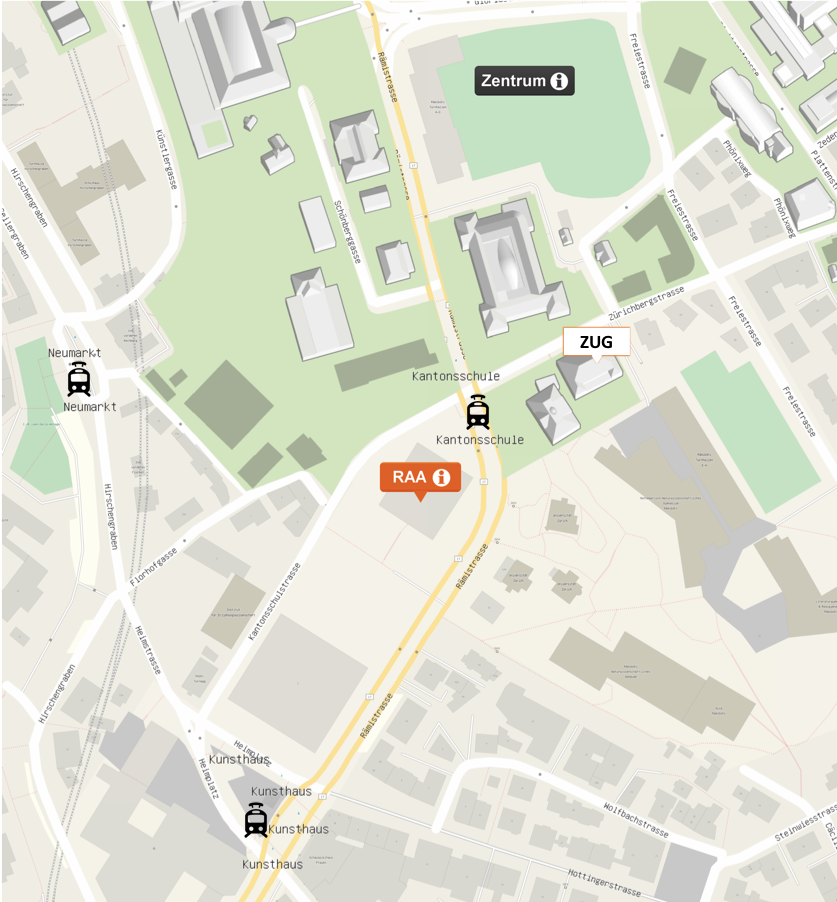Database of
Agreement in
Italo-Romance


| The
Zurich Database of Agreement in Italo-Romance |
  |
 |
||||||||||||||||||||||||||||||||||||||||||||||||||||||||||||||||||||||||||||||||||||
→ Conference Description → Keynote Speakers → Call for Papers → Abstract Submission → Important Dates → Programme → Venue and Travel → Contacts → Sponsors |
|
|||||||||||||||||||||||||||||||||||||||||||||||||||||||||||||||||||||||||||||||||||
| |
Conference DescriptionThe Department of Romance Studies
organises a 2.5-day conference
entitled “The many facets of agreement”,
which will take place at the University of Zurich 3-5 October 2019. It will host presentations by the project’s international consultants, Prof. Greville Corbett and Prof. Jürg Fleischer, intertwined with talks by further invited speakers, by project members and by other colleagues working on agreement. Michele Loporcaro, Alice Idone, Tania Paciaroni, Serena Romagnoli, Chiara Zanini Keynote SpeakersProf. Balthasar Bickel (Zurich)Prof. Greville G. Corbett (Surrey) Prof. Sebastian Fedden (Paris) Prof. Jürg Fleischer (Marburg) Prof. Elvira Glaser (Zurich) Prof. Elisabeth Stark (Zurich) Prof. Paul Widmer (Zurich) Call for PapersThe theme of this conference is “The many facets of agreement”. Yet, studies in the field still appear to be seeking a balance
between large-scale generalizations and the detailed investigation of
typological rara (i.e. traits that are “so uncommon across languages as
not even to occur in all members of a single [...] family or diffusion
area”, Plank 2000, cited by Cysouw and Wohlgemuth 2010:1). Notably,
closer consideration of the latter may lead one to challenge the
former: see e.g. Loporcaro (2015:105-8) for discussion of this issue,
partly drawing on Italo-Romance rara now widely accessible through the
DAI and analyzed in depth in Paciaroni and Loporcaro (2018). References Baker, Mark C. 2008. The syntax of agreement and concord.
Cambridge: Cambridge University Press.
Corbett, Greville G. 2006. Agreement. Cambridge: Cambridge
University Press.
Cysouw, Michael and Jan
Wohlgemuth. 2010. The other end of universals: theory and typology of
rara. In Jan Wohlgemuth and Michael Cysouw (eds). Rethinking universals. How rarities
affect linguistic theory. Berlin: De Gruyter Mouton, 1–10.
Forker, Diana. 2018. Gender agreement is different. Linguistics 56(4): 865–894.
Haig, Geoffrey and Diana Forker. 2018. Agreement in
grammar and discourse: A research overview. Linguistics 56(4): 715–734.
Loporcaro, Michele. 2015.
The impact of morphology on change in agreement systems. In Jürg
Fleischer, Elisabeth Rieken and Paul Widmer (eds). Agreement from a diachronic perspective.
Berlin: De Gruyter Mouton, 104–126.
Matasović, Ranko. 2018. An areal typology of agreement systems.
Cambridge: Cambridge University Press.
Nichols, Johanna. 2018. Agreement with overt and null
arguments in Ingush. Linguistics
56(4): 845–863.
Paciaroni, Tania and
Michele Loporcaro. 2018. Overt gender marking depending on syntactic
context in Ripano. In Sebastian Fedden, Jenny Audring
and Greville G.
Corbett (eds). Non-canonical gender
systems. Oxford: Oxford University Press, 147–175.
Plank, Frans 2000. Das
grammatische Raritätenkabinett. A leisurely collection to entertain and
instruct. Manuscript. Universität Konstanz. http://ling.uni-konstanz.de/pages/proj/
Sprachbau/rara.html.
Preminger, Omer. 2014. Agreement and its failures.
Cambridge, MA: MIT Press
Abstract SubmissionAnonymous abstracts should not exceed 500 words (12-point Times New Roman font, single spacing) including examples, excluding references.They should be submitted in electronic form (PDF or Word document) as attachment to dai@rom.uzh.ch The email should specify author(s)’ name(s) and affiliation. Important DatesApril 26, 2019 Abstract submission deadline May
10, 2019
Abstract
submission deadline extended June 10, 2019 Notification of acceptance October 3-5, 2019 Conference Dates Programme
Venue and TravelThe conference will take place in room RAA-G-01, Rämistrasse 59, 8001, Zürich The venue is located in the center of Zurich, in the City Campus area of the University of Zurich. It is easily reachable on foot from the main station (about 20 minutes walking distance) or by public transportation. The closest tram stops are Kantonschule (Line 9), Kunsthaus and Neumarkt (Line 3).
|
|||||||||||||||||||||||||||||||||||||||||||||||||||||||||||||||||||||||||||||||||||
 |
||||||||||||||||||||||||||||||||||||||||||||||||||||||||||||||||||||||||||||||||||||
ContactsQueries about the conference can be sent to this email: dai@rom.uzh.chSponsorsWe gratefully acknowledge the generous support of the sponsors that made this conference possible:Swiss National Science Foundation Hochschulstiftung der Universität Zürich URPP Language and Space UZH Alumni Istituto Italiano di Cultura di Zurigo Società Dante Alighieri di Zurigo |
||||||||||||||||||||||||||||||||||||||||||||||||||||||||||||||||||||||||||||||||||||